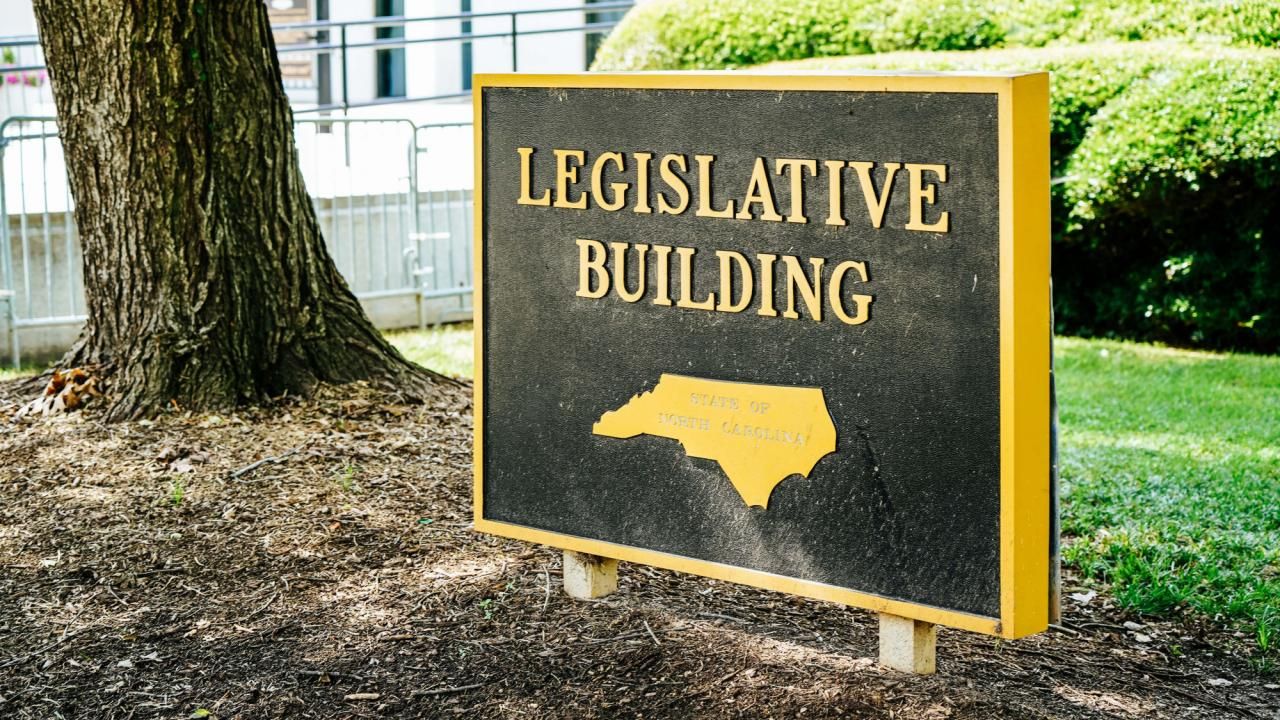NC Republicans look to strip governor of key appointments

Republican state lawmakers Monday announced plans to roll back the governor’s appointment powers on a number of key state boards, including the Board of Transportation and the commission that regulates utility companies.
Senate Bill 512 takes appointments held now by Gov. Roy Cooper and shifts them to the General Assembly. Nine boards would be affected, and the governor would still have at least some appointments to each board.
“These boards and commissions are charged with overseeing areas of state government that have a tremendous impact on our daily lives,” Republican Senate Leader Phil Berger said in a statement announcing the proposal. “By balancing the membership of these unelected boards, we’re increasing the viewpoints on the boards by diversifying the appointing authorities.”
Cooper typically has opposed measures that cut into his office’s powers.
“This legislation will hurt the state’s efforts for public health, clean water, more commuter rail transportation and lower electric bills," Cooper spokeswoman Sam Chan said. "This is another massive, unconstitutional power grab by Republican legislators who have a track record of right-wing partisan appointees who do not reflect the demographic or political diversity in our state and who often become mired in toxic infighting and controversy.”
The bill is the latest in a long-running legislative effort to weaken the governor’s office and shift decisions to the state legislature.
Cooper has his own concerns about legislative appointments. He launched a commission last year to review university board appointments, some of which lawmakers stripped from the governor's office under Cooper's predecessor, Gov. Pat McCrory.
But Cooper doesn’t have the political power to actually make changes. The Republican legislative majority does, and it’s possible that the legislature won't just pass this bill, it may add it to a state budget coming together now at the General Assembly. That would force Cooper and other Democrats to accept it or lose one of their top priorities: Medicaid expansion. That multibillion-dollar program, which cleared the General Assembly last month, won’t take effect until a new state budget passes.
Here are the nine boards in the bill and a brief description of what would change:
- N.C. Utilities Commission: Add two members for a total of nine, with four appointed by the General Assembly, four by the governor and one by the state treasurer. The governor currently appoints this full board, which regulates Duke Energy and other public utilities.
- Economic Investment Committee: Add two members for a total of seven, with three members of the executive branch serving with two General Assembly appointees and two legislators. This committee decides economic incentive grants.
- Environmental Management Commission: Currently the governor appoints nine members and the General Assembly six. The bill would give the governor seven appointments, the General Assembly six and the state’s commissioner of agriculture two. This commission sets pollution regulations.
- Commission for Public Health: Right now the governor appoints nine members and the N.C. Medical Society, a doctors group, elects four. The bill would leave the governor five appointees, give four to the General Assembly and let the Medical Society elect four.
- Board of Transportation: Now the governor appoints 14 members and the General Assembly appoints six. The bill flips that, giving the legislature 14 appointments and the governor six. The Secretary of Transportation, appointed by the governor, would continue to serve as a non-voting board member.
- Coastal Resources Commission: Right now the governor appoints nine members and the legislature four. The bill would give the General Assembly six appointments, the governor six and the state’s insurance commissioner one.
- Wildlife Resources Commission: Currently the governor appoints 11 members and the General assembly eight. The bill adds two new members, with the General Assembly and governor both appointing 10 and the commissioner of agriculture one. The commission regulates hunting and fishing.
- N.C. Railroad Board of Directors: Right now the governor appoints seven members and the legislature six. The bill gives each six appointments, plus one appointment for the state treasurer. The NC Railroad owns a rail line from Charlotte to the port terminal in Morehead City.
- The UNC Health Care Board of Directors: The bill would drop UNC faculty members from the board and reshuffle appointments so that the General Assembly makes eight appointments and the UNC Board of Governors, which itself is appointed by the General Assembly, makes 12 appointments.
The bill’s primary sponsors are Berger, R-Rockingham, Senate Rules Chairman Bill Rabon, R-Brunswick, and Sen. Warren Daniel, R-Burke. Berger’s office said the measure will begin its legislative journey Tuesday, with an 11 a.m. hearing in the Senate Judiciary Committee.











